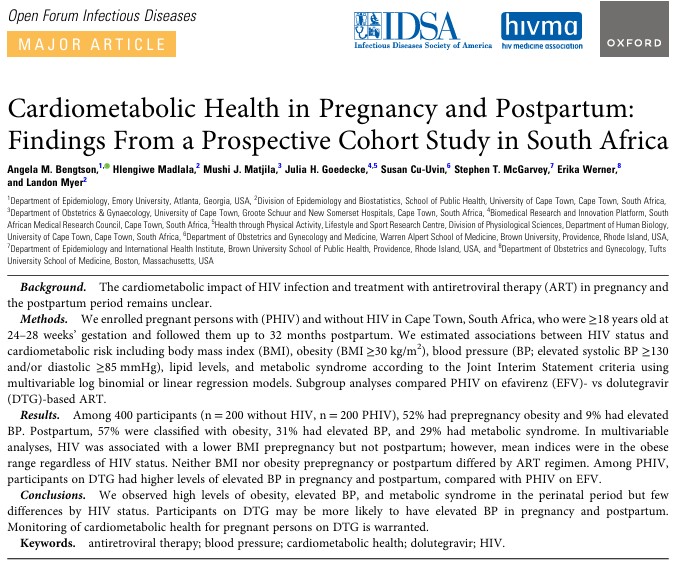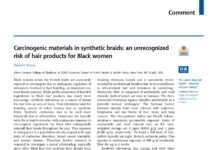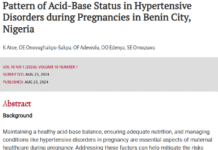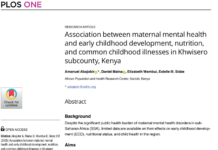May 2024: Paper of the Month by Bengtson, et al 2024 – Exploring Cardiometabolic Health in Pregnant Women: Insights from South African Cohort Study on HIV and ART Effects
A recent article by Bengtson, et al., (2024) titled “Cardiometabolic health in pregnancy and postpartum: Findings from a prospective cohort study in South Africa” published In Open Forum Infectious Diseases by Oxford University Press shows that both groups of women, regardless of HIV status, exhibited high levels of obesity and elevated blood pressure postpartum.
“
Regardless of HIV status, pregnant women in South Africa showed high obesity and elevated blood pressure postpartum, necessitating comprehensive care.-Bengtson, et al., 2024
This article presents a thorough investigation into the cardiometabolic health of pregnant and postpartum women in South Africa, focusing particularly on the influence of HIV infection and antiretroviral therapy (ART) on various risk factors such as obesity, blood pressure, and metabolic syndrome. The study adopts a prospective cohort approach, comparing pregnant women with and without HIV. Its primary objective is to analyze how HIV infection and the use of ART affect cardiometabolic risks during and after pregnancy. By observing these factors over time, researchers aimed to gain insights into the long-term implications for maternal and child health. Following the analysis of the collected data, several noteworthy findings emerged. Firstly, both groups of women, regardless of HIV status, exhibited high levels of obesity and elevated blood pressure postpartum. This suggests that factors beyond HIV may significantly contribute to cardiometabolic health issues during this period. Secondly, a potential association between the use of Dolutegravir (DTG)-based ART and higher blood pressure levels during and after pregnancy was observed. This finding underscores the importance of closely monitoring the cardiovascular health of pregnant women receiving DTG therapy. The findings from this study carry significant implications for clinical practice and public health interventions. The observed prevalence of obesity and metabolic syndrome among pregnant and postpartum women underscores the urgent need for comprehensive cardiometabolic screening protocols during prenatal care and beyond. This study was conducted in Cape Town, South Africa, providing valuable insights into the unique challenges faced by women in this region regarding HIV management and maternal health. By contributing to the existing body of knowledge on the cardiometabolic effects of HIV and ART, particularly during pregnancy and postpartum, this research informs future interventions aimed at improving maternal and child health outcomes in resource-limited settings.
How the Study was Conducted
The authors employed a prospective cohort study named the Cardiometabolic Health in Pregnancy (CAMP) study to investigate the influence of HIV and ART regimens on cardiometabolic risk during the perinatal period. Pregnant persons with and without HIV, aged ≥18 years, at 24–28 weeks gestation, were enrolled from Gugulethu, Cape Town, South Africa, between November 2019 and June 2022. Anthropometry measurements, blood pressure evaluations, and fasting blood samples for lipid and plasma glucose assessments were taken at 24–28 weeks gestation and a postpartum visit was planned at 6 months but extended up to 32 months due to COVID-19. Indicators of cardiometabolic risk such as BMI, obesity, blood pressure, and serum lipids were assessed. Multivariable log-binomial or linear regression models were used to estimate associations between HIV status, ART regimen, and cardiometabolic risk factors.
What the Authors Found
The authors found that there were high levels of obesity, elevated blood pressure, and metabolic syndrome observed in the perinatal period. Few differences were noted by HIV status in terms of cardiometabolic risk. However, participants on dolutegravir (DTG) may be more likely to have elevated blood pressure during pregnancy and postpartum. The authors also found that over half of the participants had prepregnancy obesity, and this increased postpartum.
Why is this Important
Maternal Health: Understanding cardiometabolic risks during pregnancy and postpartum is crucial for maternal health. High blood pressure, obesity, and metabolic syndrome can impact both the pregnant person and the developing fetus.
HIV and ART Considerations: The study sheds light on the impact of HIV and antiretroviral therapy (ART) on cardiometabolic health. Pregnant individuals with HIV may have unique considerations, especially if they are on specific ART regimens like dolutegravir (DTG).
Clinical Practice: Healthcare providers can use these findings to inform clinical practice. Monitoring blood pressure, weight, and metabolic markers in pregnant individuals, particularly those with HIV, is essential for early detection and intervention.
Public Health: Addressing cardiometabolic risks during pregnancy contributes to overall public health. By identifying potential risk factors and understanding their prevalence, healthcare systems can implement preventive measures and improve outcomes.
What the Authors Recommend
- The authors suggest that healthcare providers should closely monitor cardiometabolic health during pregnancy and postpartum. Regular blood pressure checks, weight assessments, and lipid profiles can help detect any abnormalities early.
- Pregnant individuals with HIV, especially those on dolutegravir (DTG), may require tailored care. The authors suggest that clinicians should consider the impact of ART regimens on blood pressure and metabolic markers.
- The authors advocate that encouraging healthy lifestyle choices is essential. This includes promoting physical activity, a balanced diet, and weight management to reduce the risk of obesity and related complications.
- In addition, the authors emphasize on educating pregnant individuals about cardiometabolic risks and the importance of adherence to ART is crucial. Awareness campaigns can help empower patients to take charge of their health.
In conclusion, the findings from Bengtson et al.’s study underscore the critical importance of understanding and addressing cardiometabolic health in pregnant and postpartum women, particularly in the context of HIV and ART. The observed high levels of obesity, elevated blood pressure, and metabolic syndrome highlight the urgent need for comprehensive screening and tailored care interventions during prenatal and postpartum periods. By implementing regular monitoring, promoting healthy lifestyle choices, and ensuring awareness of cardiometabolic risks, healthcare providers can significantly impact maternal and child health outcomes, ultimately contributing to the well-being of communities in resource-limited settings.

















 The African Research (AR) Index is a comprehensive scholarly directory and database focused explicitly on journal publishers that publish and disseminate African research.
The African Research (AR) Index is a comprehensive scholarly directory and database focused explicitly on journal publishers that publish and disseminate African research.

